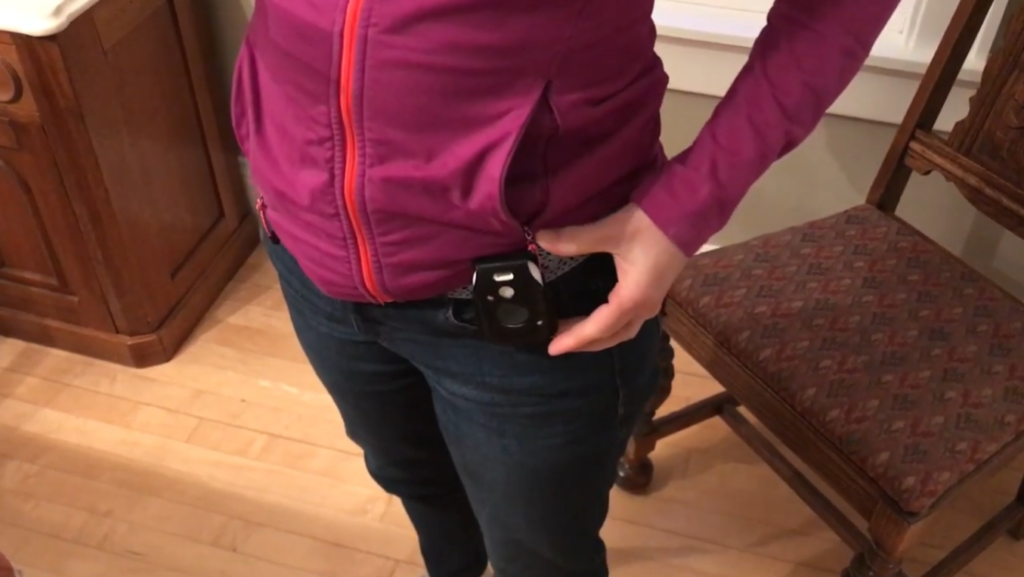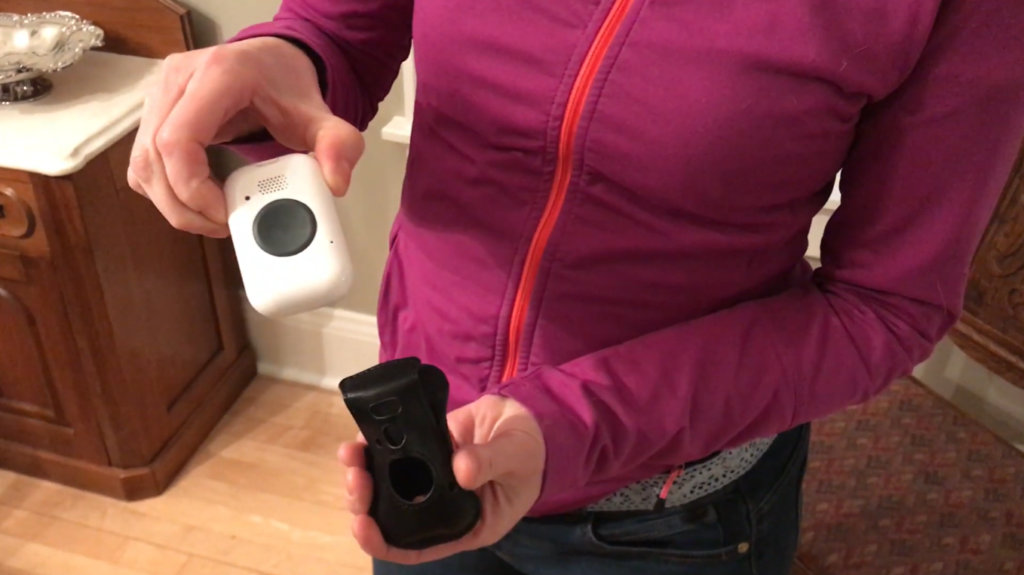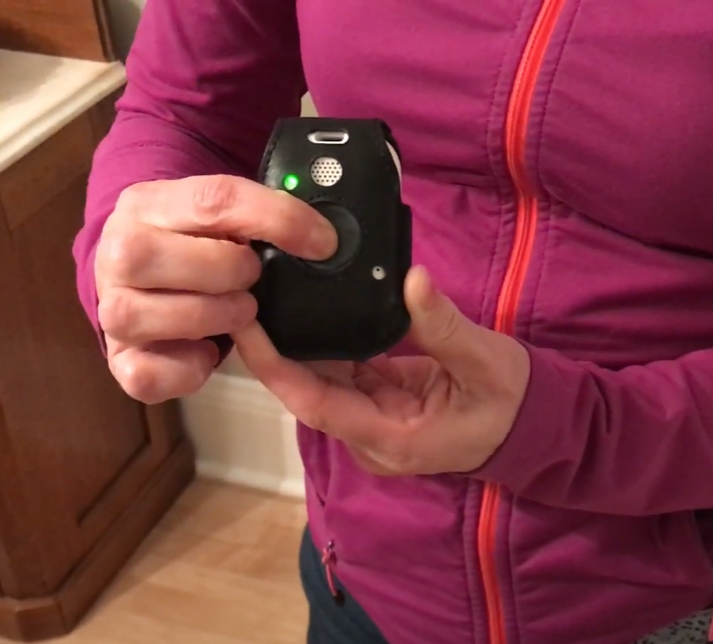Picture this: you’re an active senior citizen, still living independently in your own home, but you’re worried about what would happen if you had a medical emergency and couldn’t reach your phone. Or maybe you’re a caregiver for an elderly parent, and you worry about them falling or having a medical emergency when you’re not around. That’s where mobile medical alert systems come in.
Mobile medical alert systems are a relatively new technology that can give seniors and their loved ones peace of mind by providing an easy way to call for help in the event of a medical emergency, no matter where they are.
In this article, we’ll explore the different types of mobile medical alert systems, their features and benefits, and some popular options on the market today. We’ll also look at some of the criticisms of these systems and discuss future advancements in this exciting field. So, let’s dive in and learn more about this innovative technology that is changing the face of senior care.

What are Mobile Medical Alert Systems?
Mobile medical alert systems are wearable devices that allow seniors and individuals with medical conditions to call for help in the event of an emergency. These devices are typically small, lightweight, and can be worn on the wrist or around the neck like a necklace. They often come equipped with features like GPS tracking, fall detection, and two-way communication, making them a valuable tool for seniors living alone or individuals with chronic medical conditions.
The development of mobile medical alert systems can be traced back to the early 1970s when the first personal emergency response systems (PERS) were introduced. These systems were connected to a user’s landline phone and allowed for quick communication with a central monitoring station in the event of an emergency. In the 1990s, PERS systems began to incorporate cellular technology, allowing users to call for help from anywhere with a cellular signal.
As cellular technology continued to advance, wearable devices like smartwatches and fitness trackers began to incorporate medical alert features, leading to the development of modern mobile medical alert systems.
Mobile medical alert systems are important in healthcare because they provide an extra layer of safety and security for seniors and individuals with medical conditions. They allow for quick response times in the event of an emergency, which can be crucial in situations where every second counts. They also provide peace of mind for family members and caregivers, knowing that their loved ones have access to help at all times.
Additionally, mobile medical alert systems can help reduce healthcare costs by providing an alternative to hospitalization or long-term care for individuals who may otherwise be at risk of falls or other medical emergencies.
Types of Mobile Medical Alert Systems
GPS-enabled devices
GPS-enabled devices are mobile medical alert systems that use GPS technology to track the user’s location. These devices are often worn as a pendant or bracelet and include a button that, when pressed, sends an alert to a monitoring center. The monitoring center can then use GPS to pinpoint the user’s location and send emergency services if necessary.
Cellular-enabled devices
Cellular-enabled devices are mobile medical alert systems that use cellular networks to communicate with a monitoring center. These devices often include a built-in speaker and microphone, allowing for two-way communication with the monitoring center in the event of an emergency. They are typically worn as a pendant or bracelet and may include fall detection and GPS tracking capabilities.
Smartwatch-based devices
Smartwatch-based devices are mobile medical alert systems that are integrated into a smartwatch or fitness tracker. These devices often include health monitoring features, such as heart rate and activity tracking, in addition to medical alert capabilities. They may also include GPS tracking and two-way communication with a monitoring center, allowing for quick response times in the event of an emergency.
Each type of mobile medical alert system has its own unique features and benefits, making it important to carefully consider which type is best suited for your individual needs and preferences.

Features of Mobile Medical Alert Systems
Emergency response button
The emergency response button is the most basic and important feature of any mobile medical alert system. This button is typically worn as a pendant or bracelet and can be pressed in the event of an emergency, sending an alert to a monitoring center. The monitoring center can then contact emergency services or family members to provide assistance.
Fall detection
Fall detection is a feature that can automatically detect when a user has fallen and send an alert to a monitoring center. This feature is particularly useful for seniors or individuals with medical conditions that put them at a higher risk of falling. Fall detection can be incorporated into wearable devices or mobile apps and can help ensure that help is sent quickly in the event of an emergency.
Two-way communication
Two-way communication allows users of mobile medical alert systems to speak directly with a monitoring center in the event of an emergency. This feature is often included in cellular-enabled devices and smartwatch-based devices, allowing for quick communication with emergency services or family members.
GPS location tracking
GPS location tracking is a feature that allows a monitoring center to locate the user in the event of an emergency. This feature is particularly useful for seniors or individuals with medical conditions who may become disoriented or lost. GPS location tracking can also be used to ensure that emergency services are sent to the correct location.
By incorporating features like emergency response buttons, fall detection, two-way communication, and GPS location tracking, these systems can provide quick response times in the event of an emergency, potentially saving lives and reducing the need for hospitalization or long-term care.
Pros and Cons of Mobile Medical Alert Systems
Pros:
- Increased independence: Mobile medical alert systems can provide users with a sense of independence and allow them to continue living on their own, knowing that help is always available if needed.
- Quick response times: With features like emergency response buttons and fall detection, mobile medical alert systems can provide quick response times in the event of an emergency, potentially saving lives.
- Peace of mind: For family members and caregivers, knowing that their loved ones have access to help at all times can provide peace of mind and reduce stress and worry.
- Cost-effective: Mobile medical alert systems can be a cost-effective alternative to hospitalization or long-term care for individuals who may otherwise be at risk of falls or other medical emergencies.
Cons:
- Limited range: GPS-enabled mobile medical alert systems can have a limited range in certain areas or situations, such as in buildings or underground, where GPS signals may not be available.
- False alarms: Mobile medical alert systems can sometimes generate false alarms, leading to unnecessary emergency responses and potentially causing confusion or frustration for users and emergency responders.
- Technical issues: Like any electronic device, mobile medical alert systems can experience technical issues or malfunctions, which can cause delays or errors in emergency response times.
- User error: In some cases, users may forget to wear or charge their mobile medical alert system or may accidentally activate it without needing assistance, leading to unnecessary emergency responses.

Popular Mobile Medical Alert Systems on the market
MobileHelp
MobileHelp is a popular mobile medical alert system that offers a range of products, including cellular-enabled devices, GPS-enabled devices, and smartwatch-based devices. MobileHelp’s devices include features like fall detection, two-way communication, and GPS location tracking, and the company also offers a variety of service plans to meet different needs and budgets.
Medical Guardian
Medical Guardian is another popular mobile medical alert system that offers cellular-enabled devices, GPS-enabled devices, and smartwatch-based devices. Medical Guardian’s devices include features like fall detection, two-way communication, and GPS location tracking, and the company also offers a range of service plans, including options for 24/7 monitoring and automatic fall detection.
LifeFone
LifeFone is a mobile medical alert system that offers cellular-enabled devices, GPS-enabled devices, and smartwatch-based devices, as well as a variety of other health and safety products. LifeFone’s devices include features like fall detection, two-way communication, and GPS location tracking, and the company also offers a range of service plans, including options for 24/7 monitoring and automatic fall detection.
These mobile medical alert systems offer a variety of features and service plans, making it important for users to carefully consider their individual needs and preferences when choosing a system.
Final Thought
Mobile medical alert systems offer several benefits, such as increased independence, quick response times, peace of mind, and cost-effectiveness. However, there are also some drawbacks to consider, such as limited range, false alarms, technical issues, and user error. It is important for individuals to weigh the pros and cons of these systems when choosing the best option for their needs.
As technology continues to advance, future advancements in mobile medical alert systems may include more accurate fall detection, integration with other healthcare technologies, and improved GPS tracking capabilities. These advancements will likely further improve the effectiveness and usefulness of mobile medical alert systems in the future.
Overall, mobile medical alert systems play an important role in healthcare by providing individuals with a reliable and easy-to-use option for emergency response in the event of a medical emergency. With the ability to provide quick response times and peace of mind for both users and their loved ones, mobile medical alert systems can help individuals maintain their independence and quality of life while also reducing the burden on caregivers and healthcare systems.
